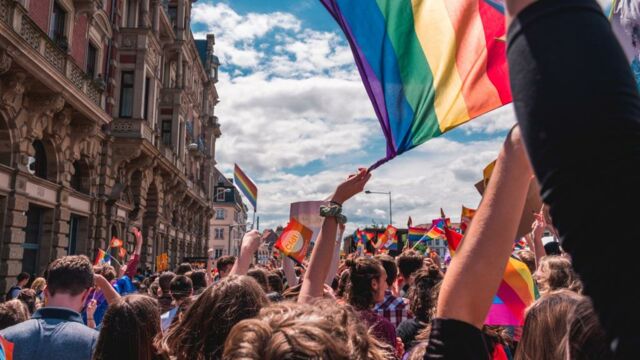The Christopher Street Liberation Day that took place on June 28 1970 to recall the events of Stonewall—and now known as Pride Month internationally— was the catalyst fo the LGBTQIA+ community to gain widespread coverage.
Discover our latest podcast
As a result, the world of sports has become much more inclusive when it comes to allowing queer athletes to have a well-deserved moment of spotlight. With pride month in our midst, we thought this would be a perfect opportunity to reflect on the progress that has been made over the course of the last few decades and, of course, the long journey ahead until equality, diversity and inclusivity becomes the new status quo.
The progress made so far
Before the turn of the century, having an openly-gay athlete become a country's sport's hero was seldom—if not, unheard of. But more and more, the idea of idolising an athlete who not only has honed their skill and talent to near perfection but who also happens to be gay has less and less of a shock value.
In MMA, Molly McCann made history as the first Englishwoman to win inside the UFC Octagon. Trampoline gymnast, Luke Strong, after almost having lost his leg in 2009 due to a serious injury while training, went on to become the first British male senior trampoline gymnast to win a medal at a European championships in the last 32 years—winning bronze in Portugal.
Even for those other than athletes in sports, we have seen greater visibility having been given to them. National league and Women's Super League referee, Ryan Atkin, conditioning coach Ben Watkiss or even non-league Ashford Town manager Luke Tuffs, have all been given important roles despite the lack of acceptance that was the norm in years past.
Another aspect that is pivotal for the inclusion of the LGBTQIA+ community within sports is the normalisation of allyship in the media. In order to bring an upcoming major tournament to Buenos Aires in 2024, the Argentine Football Association have announced their collaboration with the International Gay and Lesbian Football Association (IGLFA). President, Gus Penaranda said:
For them to reach out and work with us and their local LGBTQ soccer team is outstanding. It is sending a message to the rest of the world that being LGBTQ+ is OK.
Still a long way to go
But of course, not all that could be done has been done to better the conditions for queer folks in sports. The trans community still has a long way to go before they get to a place where true inclusivity has been reached despite recent news that trans weightlifter Laurel Hubbard will be allowed to participate in the Tokyo Olympics next month.
Even though Hubbard is making history, it comes with the cost of public ridicule and rejection as some have actively voiced their views against the inclusion of trans people in major sporting events.
Be it as it may, the progress made so far is no small feat but as a work in progress, one can only hope that more will be achieved for a community that has so much to offer.















